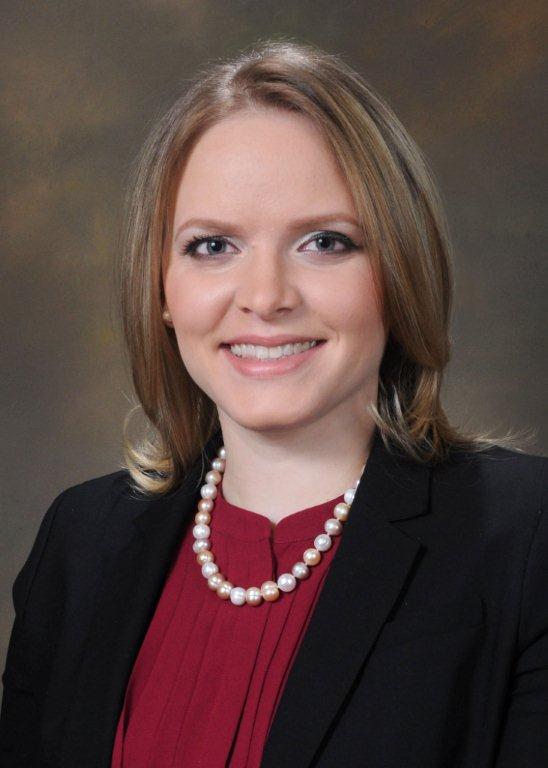On June 1, 2017, Cooper University Health Care joined the elite ranks of U.S. hospitals to earn The Joint Commission’s Gold Seal of Approval and the American Heart Association/American Stroke Association’s Heart-Check mark for Advanced Certification for Comprehensive Stroke Centers.
Cooper is one of only 124 hospitals in the nation, and the only hospital in South Jersey to achieve this voluntary certification to date, affirming that Cooper offers the highest level of stroke care available.

Ryna K. Then, MD Medical Director Cooper Stroke Program
“As a Comprehensive Stroke Center, we have personnel available 24/7 with the specialized expertise to care for any type of stroke, even the most complex,” explains Ryna K. Then, MD, a board-certified vascular neurologist who is the medical director of Cooper’s stroke program. This includes large ischemic strokes, intracerebral hemorrhage, and subarachnoid hemorrhage.
“This means we have board-certified neurologists with stroke expertise and nurses with stroke training in the hospital around the clock,” she continues. “We have neurosurgeons who are here within 30 minutes in case invasive surgery is required, and we have stroke-certified interventionists who can perform endovascular techniques—such as clipping or coiling aneurysms or retrieving blood clots from the brain— available 24/7.
“In addition, we have the capability for neuro-imaging at all times, and we have an ICU with capabilities for neuro cases and intensivists certified in neuro-intensive care,” she adds. The advanced imaging techniques Cooper offers include MRI and MR angiography, CT angiography, digital subtraction angiography, and transcranial Doppler ultrasound.
Each state has its own certifications or designations for stroke care, Dr. Then notes. And there are currently more than 900 Joint Commission-certified Primary Stroke Centers in the nation that have an established formal program to treat stroke patients effectively and consistently, with the goal of improving care and outcomes.
“But to be certified as a Comprehensive Stroke Center is the most prestigious—and reassuring—designation because it’s based on stringent AHA/ASA standards of care,” she says, “and it recognizes the significant differences in resources, staff, and training that are necessary for treating complex stroke cases.
“In the first couple of hours of onset, a stroke may look self-limiting,” she points out. “But it may continue to progress to where a patient needs a hemicraniectomy—and this can’t be known until the patient is admitted, and the situation unfolds. That’s why it’s vital to have qualified, certified, and advanced stroke care available at all times.”
To earn certification as a Comprehensive Stroke Center, hospitals must first demonstrate compliance with stroke-related standards as a Primary Stroke Center, then meet additional requirements, including those related to advanced imaging capabilities, the availability of specialized treatments, and providing staff with the unique education and competencies to care for complex stroke patients. To document its compliance with these additional requirements, Cooper underwent a rigorous two-day onsite evaluation by The Joint Commission this past April.
“They visited our floors, ICU, Emergency Department…they talked to doctors, nurses, even housekeeping, to make sure we comply with guidelines if there’s someone who may be having a stroke and follow the protocol to activate the stroke alert in the hospital,” Dr. Then relates.
“We have been providing this level of advanced stroke care here at Cooper for years,” she adds. “Now, with this certification, it’s ‘official.’”
Dr. Then also points out that in addition to the extensive resources available to diagnose and treat acute stroke, Cooper has a team of physiatrists and physical, occupational, and speech-language therapists with specialized neurological rehabilitation expertise.
“To our way of thinking, this is part of being a Comprehensive Stroke Center, too, because it helps contribute to the best possible outcomes,” she adds.
When Cooper’s certification was announced, Mark R. Chassin, MD, FACP, MPP, MPH, President and Chief Executive Officer of The Joint Commission, commented, “By achieving this advanced certification, Cooper has thoroughly demonstrated the greatest level of commitment to the care of its patients with a complex stroke condition. Certification is a voluntary process, and The Joint Commission commends Cooper University Health Care for successfully undertaking this challenge to elevate the standard of its care for the community it serves.”
Nancy Brown, Chief Executive Officer of the American Heart Association/American Stroke Association, also commended Cooper’s achievement: “The American Heart Association/American Stroke Association congratulates Cooper on achieving Comprehensive Stroke Center certification,” she said. “Meeting the standards for Comprehensive Stroke Center certification represents a commitment to deliver high-quality care to all patients affected by stroke.”
Established in 2012, Advanced Certification for Comprehensive Stroke Centers is awarded for a two-year period to Joint Commission-accredited acute care hospitals.
For questions about the Cooper Neurological Institute, or to refer a patient, email stroke@cooperhealth.edu.
